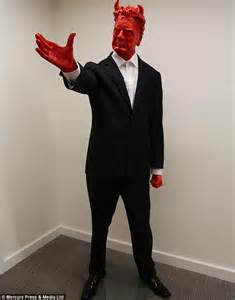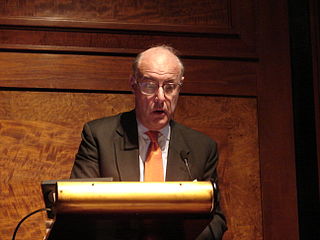A Quote by African Spir
If the present civilisation does not acquire some stable moral fondations ("bases morales stables", Fr.), its existence will hardly be more assured than that of the civilisations that have preceeded it, and which have fallen (or collapse, or failed).
Related Quotes
Moral improvement (or perfecting) require an evolution leading to a higher consciousness, which is the true torch of life; it is what we have failed too much to appreciate, and that which would be fatal to fail to appreciate any longer ("pluslongtemps", Fr.); For if we do not take it upon ourselves to remedy in time to the moral colapse (or bankruptcy) that already threaten, the whole civilisation will risks to disappear.
Let's set the existence-of-God issue aside for a later volume, and just stipulate that in some way, self-replicating organisms came into existence on this planet and immediately began trying to get rid of each other, either by spamming their environments with rough copies of themselves, or by more direct means which hardly need to be belabored. Most of them failed, and their genetic legacy was erased from the universe forever, but a few found some way to survive and to propagate.
See that unfortunate soldier who is falling hurt to death ("tombe blessé à...", Fr.) on the battlefield; he learns that his folks have vanquished and dies happy. He detached himself from himself (s'est détacher de lui-même", Fr.), has identified himself with something greater and more lasting than himself; his homeland ("patrie", Fr.); thus, while dying as an individual, he has the certainty to survive in a larger existence.
I am fully assured, that no general method for the solution of questions in the theory of probabilities can be established which does not explicitly recognize, not only the special numerical bases of the science, but also those universal laws of thought which are the basis of all reasoning, and which, whatever they may be as to their essence, are at least mathematical as to their form.
The distinction between right and wrong ("la distinction du bien et du mal", Fr.), is nothing else than their unyielding (or implacable) opposition; thus the moral consciousness is an innate and intimate revelation of the absolute, which goes beyond (or goes pass, or exceed) every empirical data (or given information). It is only on these principles that we will be able to establish ("pourront être édifiées", Fr.) the real basis of morality.
The need for sociability induce man to be in touch with his fellow men. However, this need might not ("ne saurait", Fr.) find its full (or complete) satisfaction in the conventional (or superficial, - "conventionnel", Fr.) and deceitful world, in which (or where) everyone is mainly (or mostly) trying to assert oneself in front of others ("devant les autres", Fr.), to appear, and hoping to find in society ("mondaine", Fr.) relationships some advantages for his interest and vanity (or vainglory or conceit", Fr).
Words of divine consciousness: moral exaltation; lasting feelings of elevation, elation, joy; a quickening of the moral sense, which strikes one as more important than an intellectual understanding of things; an alignment of the universe along moral lines, not intellectual ones; a realization that the founding principle of existence is what we call love, which works itself out sometimes not clearly, not cleanly, not immediately, nonetheless ineluctably.
As the antagonism between those who possess, and those who do not, is becoming more acute day after day, we can already foresee a moment when it will bring about ("entraînera", Fr.) severe (big, high, intense, - "grands", Fr.) disasters, if we do turn (direct, aim, - "dirige", Fr.) life in time the social life in new directions (or ways, - "dans des voies nouvelles", Fr.)
Men who have sacrifice their well-being, and even their lives, for the cause of truth or the public good, are, from an empirical point of view - which scorn ("fait fi", Fr.) virtue and altruism - regarded as insane or fools; but, from a moral standpoint, they are heros who do honour ("qui honorent", Fr.) humanity.
The practical question, then, is what to do with the children. Tolerate them at home we will not. Let them run loose in the streets we dare not until our streets become safe places for children, which, to our utter shame, they are not at present, though they can hardly be worse than some homes and some schools.


































